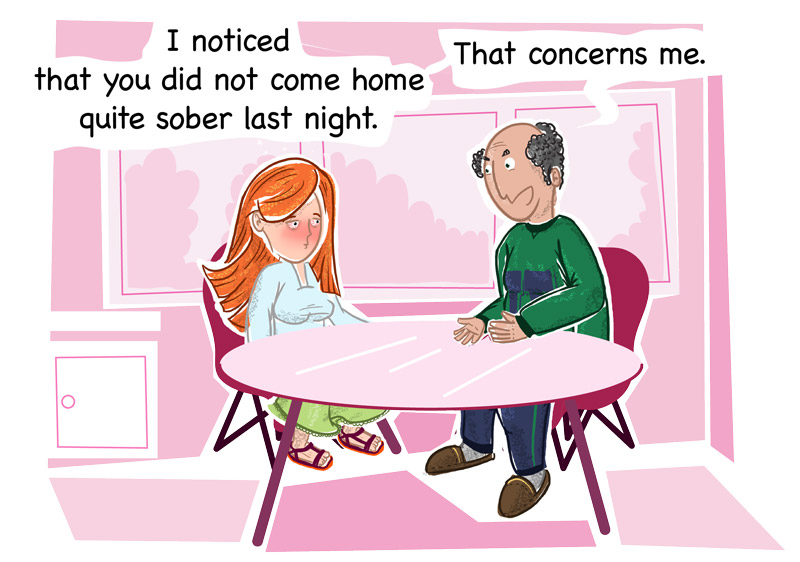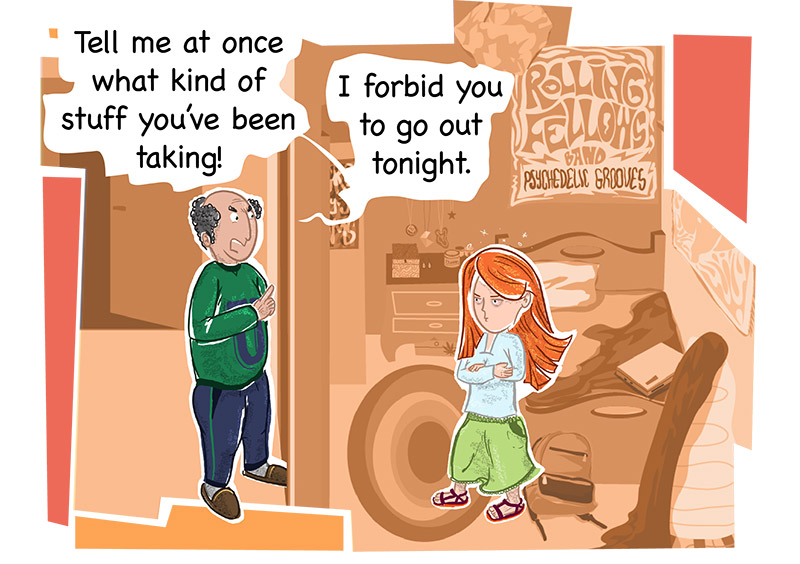
One of the most important responsibilities of growing up is…
Your daughter Sofia returns home, staggering and unsteady, following a birthday party at a girlfriend’s house. The 15-year old reeks of alcohol and you believe to detect a faint smell of cannabis as well.
How would you react? Choose one of the options provided.
If you observe the following warning signs, you should be vigilant and try to engage your teenagers in conversation:
- Your children are suddenly doing poorly in school.
- Their sleeping rhythm is changing substantially.
- Your children withdraw and avoid you.
- Your children change friends or lose contact with them entirely.
- They show a lack of interest in their hobbies.
- Your children have unusually strong emotional fluctuations and little or no desire for anything.
- Your children spend more money than usual.
These changes could also be part of a normal development during puberty. Therefore, it is best not to panic, but to remain engaged in conversations to find out more about the reasons behind these changes.
For more information:
https://www.webmd.com/mental-health/addiction/tc/teen-alcohol-and-drug-abuse-topic-overview#1
https://www.drugabuse.gov/publications/principles-adolescent-substance-use-disorder-treatment-research-based-guide/principles-adolescent-substance-use-disorder-treatment
„Talking with kids about drugs” is based on the following references:
1 Gordon, Thomas. 2012. Familienkonferenz. Die Lösung von Konflikten zwischen Eltern und Kind. 3. Aufl. München: Heyne, 143 ff
Die Stellen zur Suchtprävention im Kanton Zürich. 2016. Trinken, Rauchen, Kiffen. Abhängigkeit bei Jugendlichen vermeiden. Tipps für Eltern von 11- bis 16-Jährigen. Broschüre, 5. überarb. Aufl.
Gordon, Thomas. 2012. Familienkonferenz. Die Lösung von Konflikten zwischen Eltern und Kind. 3. Aufl. München: Heyne.
Nolan, Virginia. 2016. «Mein Kind kifft. Was nun?» Das Schweizer Elternmagazin Fritz und Fränzi, Februar. retrieved 10.11.2016.
https://www.fritzundfraenzi.ch/gesundheit/psychologie/mein-kind-kifft-was-nun




